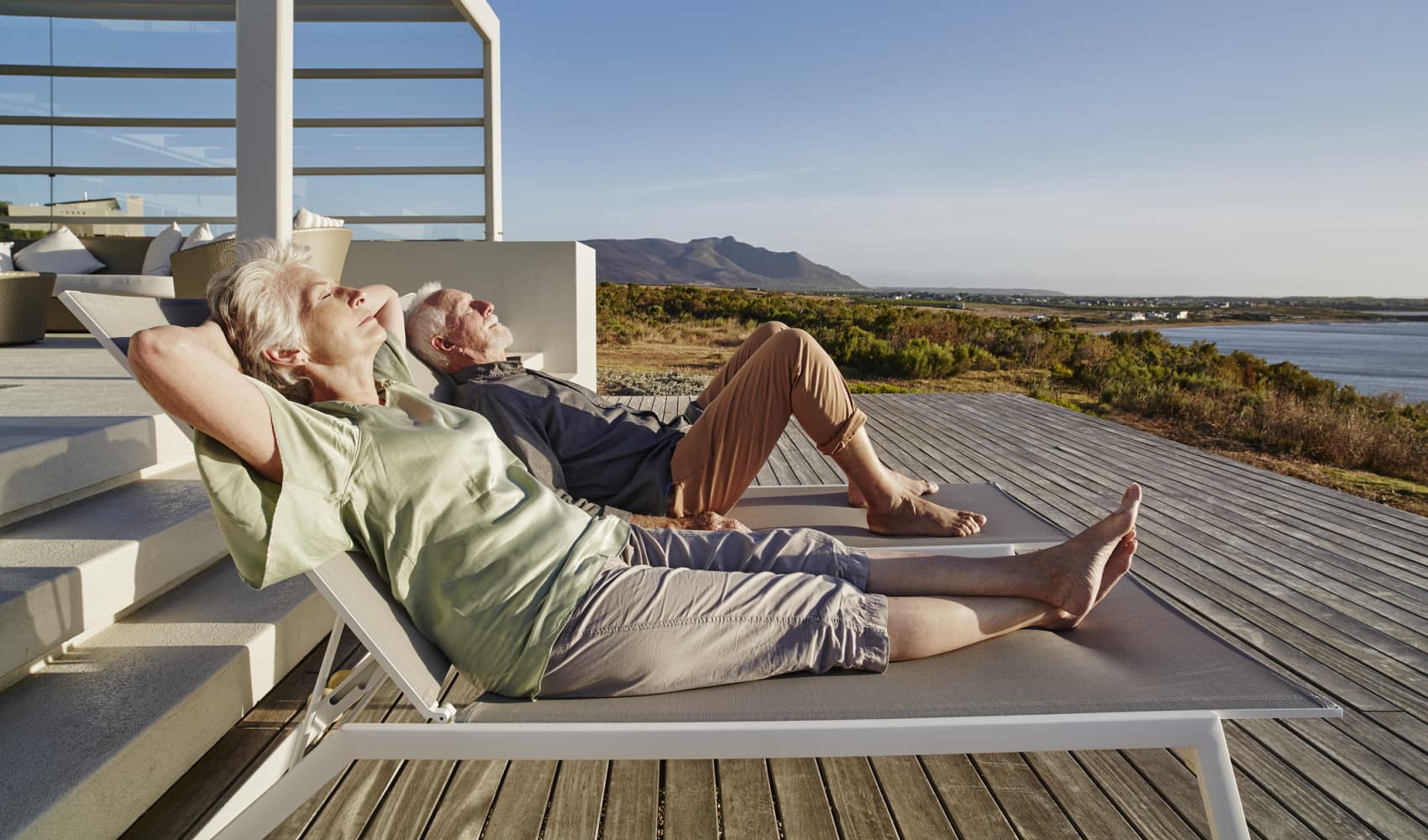Billionaires Richard Branson and Jeff Bezos aren't the only first-time astronauts who are thrilled to be going to space.
Millennial mom, TikTok star and citizen astronaut Kellie Gerardi is headed to space with Branson's Virgin Galactic, and she's "just beyond excited for astronaut training."
Gerardi got one step closer to fulfilling a "life-long dream" of heading to space when Virgin Galactic announced in June that the 32-year-old Palantir Technologies project manager and amateur bioastronautics researcher will be on an as yet un-named upcoming search mission aboard one of the private space company's spacecraft.
Get San Diego local news, weather forecasts, sports and lifestyle stories to your inbox. Sign up for NBC San Diego newsletters.
But perhaps the most exciting part of the trip is that Gerardi is not a professional scientist, and she hopes her trip of a lifetime will help pave the way for a wider range of amateur space enthusiasts, with diverse backgrounds, to reach space.
Gerard, who lives in Florida with her husband, Steven Baumruk, and their 3-year-old daughter, Delta, works on a customer support team at Peter Thiel's software company. She's also a popular science influencer who regularly posts space- and STEM-focused content on social media, including to her nearly half a million followers on TikTok.
Gerardi says she never really considered being an astronaut herself until she started participating in public science campaigns over the past decade.
Money Report
In 2012, Gerardi started working as a media specialist with the Commercial Spaceflight Federation, an industry association that lobbies on behalf of commercial spaceflight companies. From 2014 to 2020, Gerardi worked on business development for aerospace company Masten Space Systems.
During that time, Gerardi joined the Explorer's Club, which "promotes the scientific exploration of land, sea, air, and space," according to its website, in 2012. She decided to join after she met club president Richard Garriott, a millionaire video game developer who had previously paid $30 million to go to space for 12 days in 2008. Gerardi called that her "aha moment" in which she realized that the commercial spaceflight industry was opening the door for a wider range of people to go to space.
In 2014, Gerardi also got to spend two months as a crewmember at the Mars Desert Research Station, a prototype laboratory in Utah that simulates conditions on Mars, after she was accepted to the Mars One mission, a venture that had planned to send the first people to Mars by 2025 but was eventually shut down. (The mission had been criticized by scientists for not being feasible, and the venture filed for bankruptcy in 2019.)
In 2017, she joined the International Institute of Astronautical Sciences (IIAS) to study bioastronautics in her free time and be a part of an IIAS program that trains private citizens for spaceflight and space research. Gerardi completed an IIAS program called "Project PoSSUM," which offers courses (starting at $4,000 for a five-day in-person course, plus three weeks worth of webinars) that include lessons on topics such as bioastronautics and atmospheric studies, as well as training for space conditions in high altitude flights (where trainees experience weightlessness and even practice moving around in a spacesuit).
IIAS is now funding Gerardi's spaceflight and her training. The institute's overarching mission is in promoting the democratization of space by training private citizens to go to space and conduct research there. Through IIAS, Gerardi has already been on multiple parabolic, or gravity-free, research flights, which simulate weightless space conditions for mere seconds at a time by flying at high altitudes. She will conduct experiments on behalf of IIAS on the Virgin Galactic space flight, like donning the Astroskin Bio-monitor system, a "smart undergarment" that monitors astronauts' vital signs.
Gerardi revealed her big space flight news on TikTok with a series of short videos, including one with Delta that notes fewer than 100 women have been in space, which has been viewed over 1.6 million times.
After Virgin Galactic and IIAS announced her flight in June, Gerardi spoke to CNBC Make It about her longtime dream of going to space and why her ultimate goal is to pave the way for more private citizens, like herself — especially women — to reach the stars.
CNBC Make It: As a woman and mom, how cool has it been to share this exciting news with your daughter, Delta?
Kellie Gerardi: The most rewarding part is definitely telling our 3 year old daughter, Delta.
I get emotional when I think about what it means for her to watch her mommy become an astronaut, because it's meaningful. And, in her little mind, she thinks flying to space is just another thing that moms do.
And that's just so cool.
How did the Virgin Galactic opportunity come about?
I've been working with IIAS on microgravity [the state of weightlessness in space] research, astronautics research.... And I've also been really heavily involved in outreach and engagement for the organization, especially towards young women.
Enabling access to space for this research community has been a long-time goal of IIAS. So, it really is an exciting honor to be entrusted with the opportunity to just show how all researchers can use the environment of space and these human-tended research fights on platforms like Virgin Galactic as a laboratory to benefit all of humanity.
When did you officially find out you were going to space and what was that like?
It formalized just a few weeks before the announcement. And, you know, it's euphoria, right?
And, I definitely don't want to downplay my excitement; I was and remain overwhelmed with excitement. But, I do feel like sometimes people expect me to say something like, 'I never could have dreamed of this.'
But, that would not be really true. The reality is, I have dreamed of this exact opportunity every single day in detail for a decade, or so. It's like this has always been living in the back of my head, rent-free.
The flight will be around 75 minutes, in total, and you'll have just a few minutes of weightlessness to conduct your experiments before returning to Earth's atmosphere. How do you plan to use that time?
I'm going to be choreographing every single second [of the flight] while I'm here on Earth. I'm going to make sure that every single second is accounted for to maximize the science returns, but also to account for the reality of this being the most exciting moment of my life.
I want to plan for the reality that I'm going to be overwhelmed in the best way. So, I really want to bookmark 30 seconds to a minute, specifically, to just look out the window and digest the fact that I'm in space and the profundity of that moment.
What sort of training or preparation do you need to complete before you can go on this spaceflight?
"I like to joke that I'm upping my dose of 'Vitamin G' [aka g-force].
So, I'll choreograph all of my movements in the cabin and I'll practice that choreography on a series of aerobatic, or High-G flights [where she'll be subjected to high levels of gravitational force] and parabolic [zero-gravity] flights in a test flight suit that is an exact replica of what I'll be wearing in space.
Back in 2014, you were training to potentially go to Mars, and you were a crewmember at the Mars Desert Research Station. Is going to Mars still a goal for you?
I think I'm location agnostic when it comes to space.
Going to Mars is one of those like, 'Oh, gosh, I just wanted to be involved in the societal conversation.' And I really wanted to, like, remove the giggle factor, of the fact that we can send humans to live and work on Mars. That is something within our engineering capability as a society right now.
For me, if I had the opportunity ever to go, yeah, in a heartbeat. But if I had to answer the interview question of where I see myself in five years, it's not necessarily on Mars.
How important do you think it is that you share your journey, and your love of science and space, with your many social media followers? And, did it bother you at all when some headlines about your spaceflight referred to you only as a "TikTok star"?
I think some people would expect that I would feel, I don't know, undermined by that or that it was reductionist somehow. But I feel the opposite.
I'm actually super humbled to have the attention shined on the fact that I have been able to harness some of these social media platforms to really help evangelize space exploration...That's exactly what I set out to do on social media.
I set out to influence the way that people think about space exploration and the type of people that they associate with space exploration.
Gerardi's June interview with CNBC Make It has been edited for length and clarity.
Sign up now: Get smarter about your money and career with our weekly newsletter
Don't miss:
How SpaceX, social media and the 'worm' helped NASA become cool again
Meet the billionaire high school dropout commanding SpaceX's all-civilian mission






